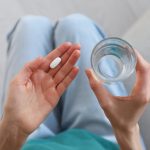
Poverty is the fourth-greatest cause of death in the United States, according to new research. Researchers at the University of California, Riverside estimate that poverty was associated with 183,000 deaths in 2019 among people 15 years and older. And that’s a conservative estimate, they say, because the year was just prior to the COVID-19 pandemic. “Poverty kills as much as dementia, accidents, stroke, Alzheimer’s and diabetes,” said David Brady, the study’s lead author and a UCR professor of public policy. “Poverty silently killed 10 times as many people as all the homicides in 2019. And yet, homicide firearms and suicide get vastly more attention,” he added in a university news release. People living in poverty have incomes less than 50% of the U.S. median income, the researchers noted. (In 2021, the median household income was $70,784 per household, according to the U.S. Census Bureau.) Impoverished Americans have roughly the same survival rates as richer folks until they hit their 40s. Then they die at significantly higher rates, according to the study. The analysis found that only heart disease, cancer, and smoking kill more people than poverty. Deaths related to obesity, diabetes, drug overdoses, suicides, firearms and homicides were all fewer than deaths associated with poverty. Researchers analyzed income data from the Institute for Social Research at the University of Michigan and death data from household… read on > read on >


















